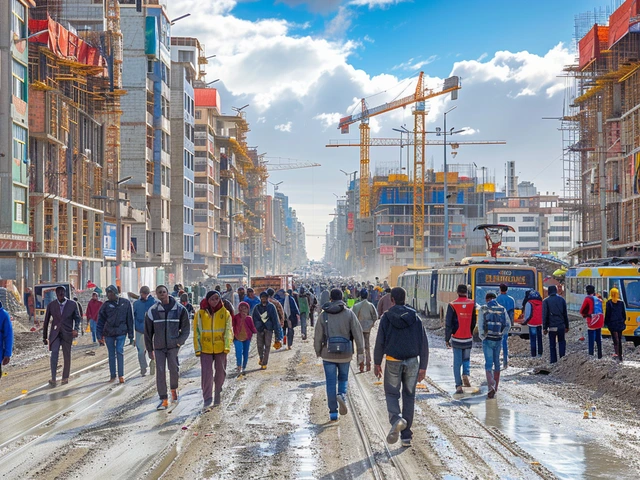Ethiopian Economy: Jobs, Salaries, and Real Opportunities
Thinking about work or business in Ethiopia? The country’s economy is changing quickly and there’s a lot to unpack—jobs, salaries, investment chances, and even what daily life costs. That’s a lot to sort out, but let’s break it down so you actually get value out of every line.
Ethiopia is drawing attention for its fast economic growth. New industries are popping up, from agriculture and textiles to tech startups and construction. Even with challenges, people in Ethiopia—locals and newcomers—are finding new ways to make money. The government is pushing reforms and investing in infrastructure, which means the business climate is way more inviting than it used to be. If you’re thinking about investing, sectors like agriculture, manufacturing, and services all offer openings. You don’t need millions to get started either—many have found that with the right research, even modest investments can go far.
The job market is diverse. High-paying jobs include roles in tech, engineering, and pharmaceuticals, while positions in education, healthcare, and administration are always in demand. If you’re looking for specifics, pharmacist and teacher salaries differ based on experience and whether you work publicly or privately. But aside from salary, the cost of living can be a game-changer. Living in Addis Ababa, for example, comes with higher rents and expenses, but jobs there may pay more. In smaller cities and towns, life is more affordable—rents, food, transport. For job seekers, knowing these differences really matters.
If you’re planning to move or invest, you want to know about regulations and logistics. Foreigners can work in Ethiopia, but there are requirements and paperwork. Want to earn money online? Digital platforms are growing, opening options like freelancing, e-commerce, and teaching. Payments can be a headache since services like PayPal aren’t officially supported yet, but people usually find workarounds with other platforms.
Housing is another big concern. Options range widely—from modern condos in the city to traditional tukuls in the countryside. Average house rents and living conditions vary, so a bit of local research pays off. Feeling safe? Addis Ababa and most big cities are reasonably safe for work and life, but it helps to stay alert and understand the neighborhoods.
If you’re curious about the financial side, Ethiopia actually has a growing class of millionaires and business leaders. Many have built their wealth in agriculture, construction, and emerging tech. Learning from their stories can give you clues on what really pays off here.
Every sector—jobs, business, or daily living—comes with specific facts, challenges, and rewards. Whether you’re moving for work, investing, or just curious about Ethiopia’s economy, there’s a ton of practical know-how out there. If you’re smart about it, the Ethiopian economy can offer real pathways to making money and building a solid future.















